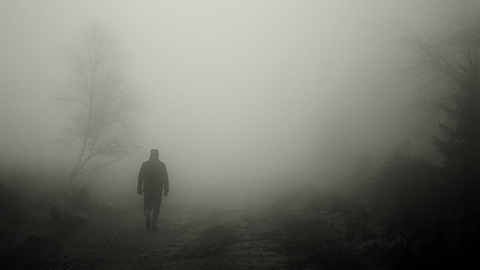Insomnia and Depression Can Cause Nightmares
People who have frequent nightmares often suffer from insomnia, have symptoms of depression and a reduced work ability. The results of a new, extensive study carried out by the University of Turku and the National Institute for Health and Welfare suggest that also substantial use of alcohol and high stress are connected with having nightmares.

Nightmares are unpleasant dreams that often wake the sleeper up. Occasional nightmares are common and harmless but frequent nightmares can be a serious problem.
– 3–5 percent of Finnish adults have nightmares often, women more than men and the elderly more than the young. In the research, we studied which psychological and physical factors are related to having nightmares, says Nils Sandman, Doctoral Candidate of the University of Turku and a visiting researcher of the National Institute for Health and Welfare.
The main discovery of the researchers is the strong connection between frequent nightmares, insomnia and symptoms of depression. Almost 20 percent of the respondents with recurring insomnia or diagnosed depression experienced frequent nightmares, whereas of the respondents who slept well and did not have any symptoms of depression only 2 percent had nightmares.
Furthermore, the use of medication for insomnia or depression was connected with nightmares,but according to the statistical analysis, the increase in nightmares due to the drugs was not separate from the effects of insomnia and depression.
Exercise Decreases Nightmares
Reduced work ability, discontentment with life, high stress and substantial use of pain medication are also related to having frequent nightmares. In addition, questions about the lifestyle of the respondents revealed that binge drinking several times a month was also connected with nightmares.
– Instead, those respondents who exercised a great deal experienced less nightmares on the average, says Sandman.
The data of the study was collected in the FINRISKI health surveys conducted by the National Institute for Health and Welfare in 2007 and 2012. Altogether 13,922 Finns aged 25–74 responded to the surveys.
– Because of the nature of the research, we could not point out a direct causation between nightmares and the risk factors, but the results will help in guiding future research to the right direction and increase our understanding of nightmares as a phenomenon, says Sandman.
The study was published in SLEEP, the leading international journal of sleep research and medicine.
Text: Jenni Valta
Photo: cocoparisienne
Translation: Mari Ratia